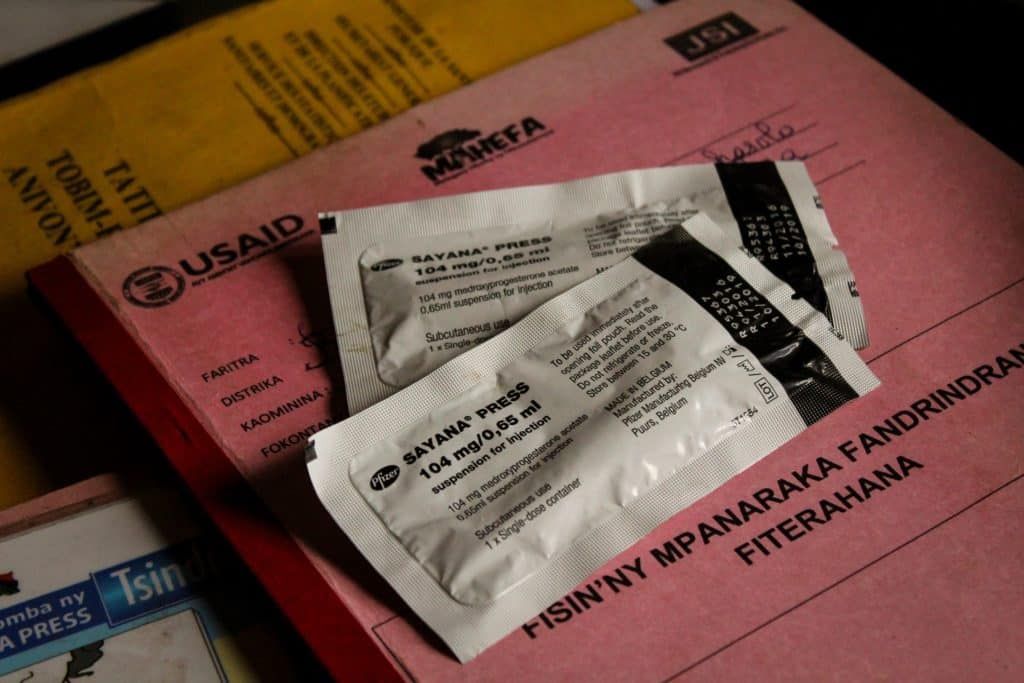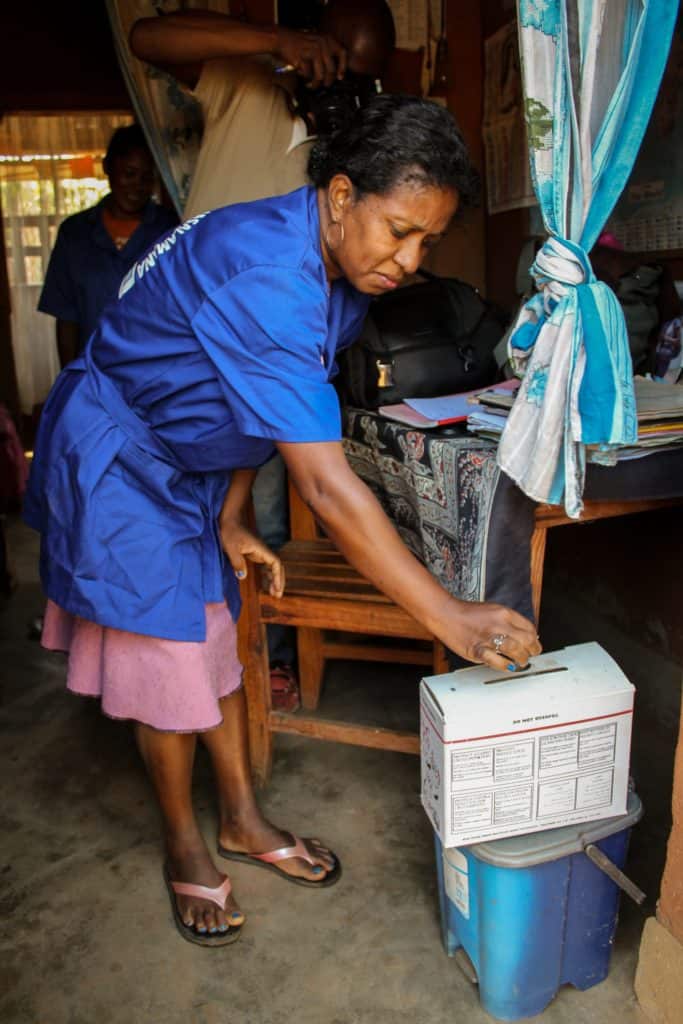This website uses cookies so that we can provide you with the best user experience possible. Cookie information is stored in your browser and performs functions such as recognizing you when you return to our website and helping our team to understand which sections of the website you find most interesting and useful.
Tsaramandroso village is a small, remote village located in Western Madagascar. There are no bridges and the river is very wide, forcing visitors to rely on a makeshift ferry to access the town.
In this small village, community health volunteers (CHVs) provide counseling on family planning options, including condoms, birth control pills, injectables, and implants at a “health hut”, known locally as a toby.
CHVs also provide high quality, effective services at the community level, including introducing new, effective health care methods. In fact, CHVs do everything, including diagnosing malaria and pneumonia, promoting infant vaccination, and actively sharing healthy practices regarding sanitation and hygiene.
Community health volunteers Olga Tsimiambina and Marie Liliane Rasolondrenibe (Solo) inside their health hut in Tsaramandroso.
Expanding Access to Family Planning Choices
To provide women with additional choices and expand access to plan their families, Madagascar recently introduced DMPA-SC (marketed as Pfizer’s Sayana® Press), a new, lower-dose, easy-to-use injectable contraceptive. DMPA-SC is designed to make it easier for women to access injectable contraception.

The pre-measured dose of hormones makes it easier for the CHVs to use because they don’t have to worry about measuring out precise amounts of the right hormone, and don’t have to worry about air bubbles or losing product. They simply insert the needle into the patient’s arm, and squeeze the reservoir to release the product. It is simpler, more efficient, and much easier to learn than other methods.
CHV Solo uses a job aid designed JSI through the Mahefa Miaraka project to determine when women need to return to receive their next injection of birth control hormones.
Sayana Press arrived and we were able to use it right away because it was so easy. It also hurts the patients less because the needle is smaller,” said CHV Marie Liliane Rasolondrenibe, or “Solo”, as she likes to be called.

As part of their training, CHVs learned proper hand washing techniques and how to correctly dispose of used needles.
Giving Women the Power to Plan their Families
DMPA-SC is not only easier for CHVs, it’s also easier for patients. After being counseled about various family planning methods, Claudiana, aged 17, chose to use DMPA-SC as her first family planning method. Many young girls like Claudiana are encouraged by their mothers to seek family planning services so they can remain in school rather than drop out to raise children.
“There’s nothing really bad about it, I’ve had no problems,” Claudiana said. “It hurts a little, but I have recommended it to friends.”
Claudiana is injected with DMPA-SC by CHV Solo. Claudiana has been using DMPA-SC for less than a year.
Victoria, who is already the mother of two children, has used another family planning method for the last two years. She switched to once DMPA-SC became available for its convenience.
After properly washing her hands and disinfecting the patient’s arm, CHV Olga injects 23 year-old Victoria with DMPA-SC.
“I didn’t want to take the pill because I knew I would always forget to take it,” Victoria said.
In Tsaramandroso village, around 50 women come to the health hut each month to receive DMPA-SC injections. While stock issues have prevented some expansion of the injectable, interest in DMPA-SC continues to grow as women spread the word about their satisfaction with the product. As more women utilize DMPA-SC and other contraceptive options, they gain greater control of their futures and their family’s health.
JSI is working around the globe to influence policy, improve health systems performance, and build better supply chains to ensure that all women and adolescents have access to the family planning services they need and want. Learn more about our efforts to expand access to family planning and reproductive health services.

